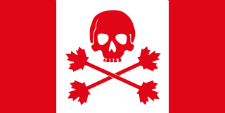Supreme Court Will Decide if ISP Can Charge Money to Expose Pirates

The company has filed numerous lawsuits against alleged pirates in the United States, Europe, Canada and Australia, and is estimated to have made a lot of money doing so.
Voltage and other copyright holders who initiate these cases generally rely on IP addresses as evidence. This information is collected from BitTorrent swarms and linked to an ISP using an IP-database.
With this information in hand, they then ask the courts to direct Internet providers to hand over the personal details of the associated account holders, in order to go after the alleged pirates.
In Canada, this so-called copyright trolling practice hasn’t been without controversy.
Last year Voltage Pictures launched a “reverse class action” to demand damages from an unspecified number of Internet users whom they accuse of sharing films, including The Cobbler, Pay the Ghost, Good Kill, Fathers and Daughters, and American Heist.
The application of a reverse class action in a copyright case was unprecedented in itself. In a single swoop, many of Internet subscribers were at risk of having their personal details exposed. However, Internet provider Rogers was not willing to hand over this information freely.
Instead, Rogers demanded compensation for every IP-address lookup, as is permitted by copyright law. The provider asked for $100 per hour of work, plus taxes, to link the addresses to subscriber accounts.
The Federal Court agreed that the charges were permitted under the Copyright Act. However, when Voltage Pictures appealed the decision, this was reversed. The Appeals Court noted that there’s currently no fixed maximum charge defined by law. As long as this is the case, ISPs can charge no fees at all, the argument was.
In addition, the court stressed that it’s important for copyright holders to be able to protect their rights in the digital era.
“The internet must not become a collection of safe houses from which pirates, with impunity, can pilfer the products of others’ dedication, creativity and industry,” the appeal court Justice David Stratas wrote.
Not happy with the decision, Rogers decided to take the matter to the Supreme Court, which just decided that it will hear the case.
The Supreme Court hasn’t given an explanation for its decision to take the case. For the accused BitTorrent pirates in Canada, it’s certainly one to watch though.
The case will in large part determine how profitable the copyright trolling scheme is in Canada. When ISPs can charge a substantial fee for the IP-address lookups the efforts might not bring in enough money through settlements, making them less likely to continue.
Source: TF, for the latest info on copyright, file-sharing, torrent sites and more. We also have VPN discounts, offers and coupons




Leave a Reply
Want to join the discussion?Feel free to contribute!